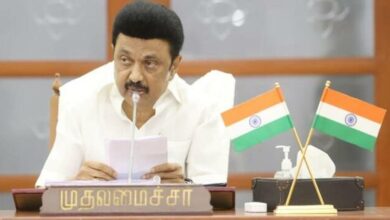Jaishankar mentions the Red Sea incidents in his argument for many connecting corridors
Diverse connection pathways are more important than ever in a world where violence and unpredictability are on the rise.

India’s External Affairs Minister, S Jaishankar, is at the center of this strategic reorientation. He recently emphasized the critical significance of initiatives like the India-Middle East-Europe Economic Corridor (IMEC), along with other alternative routes, to guarantee robust and long-lasting global connectivity.
In his speech on February 20, 2024, at the 2nd CII India Europe Business and Sustainability Conclave in New Delhi, Jaishankar outlined a vision that prioritizes Europe while also aiming to link other areas via creative connection corridors.
Europe-Mideast Economic Corridor
Drawing attention to the importance of the IMEC, Jaishankar said, “The India-Middle East-Europe Economic Corridor (IMEC) Furthermore, it’s possible that none of us really understood how fragile the current connection was when this agreement in principle was made last September at the G20 fringes. We were reminded of it by recent events in the Gulf of Aden and on the Red Sea.”
“And it’s not like we went back and saw what happened when the Suez Canal was blocked by an accident for a while,” he said. Hence, it is imperative that we establish numerous corridors of connectivity, supporting corridors of connectivity, and various forms of connectivity, each with its own inherent resilience, as there are two major centers of production and consumption—Europe and India—at either end of this chain.”
The minister also spoke about non-IMEC alternative connectivity initiatives, such as the possibility of a polar route that would provide a fresh logistical route across the Indo-Pacific between India and Europe.
SOUTH ASIAN REGIONAL CONNECTIVITY
Jaishankar also spoke into detail on regional connectivity projects in South Asia, such the ambitious trilateral highway project that aims to link Vietnam with India but is now encountering difficulties in Myanmar and the Bangladesh-Bhutan-India-Nepal (BBIN) effort.
“It is imperative that I inform our European friends that there are currently ongoing, massive connectivity projects in South Asia, both within and outside of this region. Additionally, there are even more ambitious plans in the works to connect India with its immediate neighbors, Bangladesh, Nepal, and Bhutan. We have witnessed a significant transformation in terms of roads, grid connections, and waterways,” he stated.
“There is a much more laborious project, the trilateral highway,” they said. Furthermore, even if there are difficulties in Myanmar, if the IMEC is completed and links India to Europe via the West, the trilateral highway will ultimately reach the coast of Vietnam. As a result, there will be a lateral connection grid that, mostly via land, connects Europe to the Pacific. Thus, it is definitely something to think about.
Greece’s Minister of Foreign Affairs, Giorgos Gerapetritis, stated: “India has emerged during G20 as the voice of Global South.” EU-India relations provide special possibilities. I firmly believe that both India and Europe would benefit economically from the India-Middle East-Europe Corridor. Greece hopes to play a key role in this regional endeavor. This massive connectivity project, which will serve as India’s entry point to Europe, would increase the region’s strategic significance from an economic and geopolitical standpoint and foster more peace and stability.
Jaishankar’s support for these initiatives highlights the strategic significance of Europe for India as well as the larger goal of improving connectivity at a time of rapidly evolving technology and digital revolution.
As shown by the increasing frequency of high-level meetings and the strengthening of commercial and technical alliances, he emphasized the noteworthy advancements in bilateral ties.
International counterparts endorse the vision of the minister of foreign affairs. Ministers from Greece, Latvia, and Estonia have expressed support for the IMEC and other joint initiatives, highlighting the connections between digital innovation, sustainable development, and governance.
He said that India really prioritizes Europe. He provided an explanation for his remarks, saying that the Indian prime minister had visited Europe 27 times while in office. 37 heads of European governments have greeted him. During my 29 visits to Europe, I have had the pleasure of receiving 36 of my colleagues. I’ve highlighted these figures to highlight how long-lasting, intense, and ongoing the connection has been.
Speaking on human skilling and mobility, Jaishankar stated: “We have completed a number of mobility agreements with our European counterparts in the past few years, and the plus point of these agreements is that they encourage movement of specific skill sets as well as legal movement. Consequently, it also neatly satisfies the needs of the customer on the opposite end.
The Minister of Foreign Affairs of the Republic of Estonia, Margus Tsahkna, said: “People in Estonia are highly educated and have creative thinking skills. Governance is evolving as a result of digitalization. India has creativity and technology, thus our combined potential is enormous.”
Jaishankar further emphasized the need of signing free trade agreements with the EFTA and the European Union. It is significant because, as you can see, trade levels have been rising gradually, but there is a growing realization that, in order to speed up this growth, we need a more supportive environment, he said.
According to the Republic of Latvia’s Minister of Foreign Affairs, Kriũájanis Karinũá, “Our country is hungry to learn, it is hungry to work.” He emphasized that Latvia may serve as a gateway to a large European market and that India and the European Union are mutually dependent.
“The growth and sustainability of India’s relations with Europe builds on the recent milestones in the relationships including trade and technology council with the EU, the India-Middle East-Europe Economic Corridor and the Partnership for Global Infrastructure and Investments,” stated Chandrajit Banerjee, Director General, Confederation of Indian Industry.







